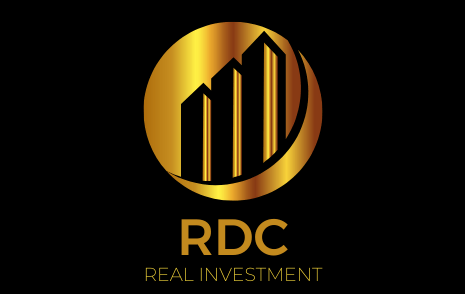Africa Lithium Industry Guide
Africa Lithium lucrative profit guide. In this article, we will delve into the current state of the lithium market in Africa. Thus, exploring key mining projects, discussing major players in the industry, and analyzing the growth prospects and challenges faced by this emerging sector.
Understanding the Lithium Market in Africa
Africa is becoming an increasingly important player in the global lithium market. The continent possesses significant lithium reserves, attracting attention from both local and international investors. As the demand for lithium-ion batteries continues to rise due to their use in electric vehicles and renewable energy storage systems. Hence, Africa’s lithium industry is poised for remarkable growth.
[maxbutton id=”2″ url=”https://www.reuters.com/markets/commodities/africa-gears-up-keep-more-profits-lithium-boom-2023-02-09/” text=”UNDERSTAND NOW” ]
Major Lithium Mining Projects in Africa
- Greenbushes Lithium Mine – Located in Western Australia, the Greenbushes Lithium Mine is one of the largest and most significant lithium mines in the world. It is jointly owned by Talison Lithium (51%) and China’s Tianqi Lithium (49%). With an estimated 161 million tonnes of lithium reserves, the mine plays a crucial role in global lithium supply.
- Manono Lithium Project – Situated in the Democratic Republic of Congo (DRC), the Manono Lithium Project is considered one of the largest lithium-rich pegmatite deposits globally. With an estimated resource of 400 million tonnes, it has the potential to become a major lithium producer in Africa. The project is operated by AVZ Minerals and has attracted interest from various international investors.
- Mount Marion Lithium Mine – Located in Western Australia, the Mount Marion Lithium Mine is a joint venture between Mineral Resources Limited, Jiangxi Ganfeng Lithium Co., and Neometals. Hence, with proven and probable reserves of over 71 million tonnes, the mine plays a significant role in the global lithium supply chain.
[maxbutton id=”2″ url=”https://www.bgs.ac.uk/news/lithium-resources-and-their-potential-to-support-battery-supply-chains-in-africa/” text=”ACCESS NOW” ]
Key Players in Africa’s Lithium Industry
- Albemarle Corporation – Albemarle is a leading global lithium producer and has several lithium projects in different countries, including Australia and Chile. The company is actively exploring opportunities in Africa and has invested in the Manono Lithium Project in the DRC.
- Pilbara Minerals Limited – Pilbara Minerals is an Australian-based mining company focused on the exploration and development of lithium and tantalum projects. The company’s flagship operation is the Pilgangoora Lithium-Tantalum Project, which has substantial lithium resources.
- Tianqi Lithium – Tianqi Lithium is a Chinese company with significant investments in the lithium industry. Apart from its ownership stake in the Greenbushes Lithium Mine, Tianq. Furthermore, Lithium also operates the Kwinana Lithium Hydroxide Plant in Western Australia.
[maxbutton id=”2″ url=”https://www.tycorun.com/blogs/news/top-5-world-lithium-mine-in-africa” text=”LEARN NOW” ]
Growth Prospects and Challenges

Growth Prospects
Africa’s lithium industry holds immense potential for growth, driven by several factors:
- Abundance of Lithium Reserves – Africa possesses substantial lithium reserves, particularly in countries like the DRC, Zimbabwe, and Namibia. These reserves provide a solid foundation for the development of a thriving lithium industry.
- Rising Demand for Electric Vehicles – The global shift towards electric vehicles (EVs) presents a significant opportunity for Africa’s lithium industry. Lithium-ion batteries are a crucial component of EVs, and as the adoption of electric vehicles accelerates, the demand for lithium is expected to soar.
Renewable Energy Storage – The increasing deployment of renewable energy systems, such as solar and wind, requires efficient energy storage solutions. Lithium-ion
batteries are at the forefront of energy storage technology, positioning Africa’s lithium industry to cater to the growing demand for renewable energy storage solutions.
Challenges
While Africa’s lithium industry has promising growth prospects, it also faces certain challenges:
- Infrastructure Development – Developing the necessary infrastructure for mining and processing lithium can be a significant challenge in some regions of Africa. Building reliable transportation networks and establishing efficient power supply systems are crucial for the successful development of lithium projects.
- Regulatory Environment – Navigating complex regulatory frameworks and ensuring compliance with environmental and mining regulations can pose challenges for companies operating in the lithium sector. Establishing transparent and stable regulatory frameworks is essential to foster a favorable business environment.
- Sustainable Practices – Adopting sustainable mining practices and mitigating environmental impacts are important considerations for the long-term viability of the lithium industry in Africa. Promoting responsible mining methods, minimizing water usage, and implementing effective waste management strategies are vital to ensure the sustainable growth of the industry.
Start avoiding these challenges on the road to successful investing:
[maxbutton id=”2″ url=”https://bit.ly/3y9RjtB” text=” GET NOW” ]
Conclusion

Africa’s lithium industry is on a trajectory of growth and development, driven by its abundant lithium reserves and the increasing global demand for lithium-ion batteries. Major lithium mining projects, such as the Greenbushes Lithium Mine, the Manono Lithium Project, and the Mount Marion Lithium Mine. Thus, showcasing the continent’s potential as a significant player in the global lithium market.
Key players, including Albemarle Corporation, Pilbara Minerals Limited, and Tianqi Lithium, are actively involved in Africa’s lithium industry. Hence, contributing to its development and expansion. With a favorable regulatory environment and sustainable mining practices. Therefore, Africa has the opportunity to emerge as a leading supplier of lithium for electric vehicles and renewable energy storage systems.
As the continent continues to address challenges related to infrastructure development, regulatory frameworks, and sustainable practices, Africa’s lithium industry is poised for a bright future. By capitalizing on its abundant resources and fostering innovation. So, Africa can position itself as a key player in the global lithium market, driving economic growth and contributing to a sustainable energy future. Remember, become a better investor and capitalize on this latest boom in Lithium!
[maxbutton id=”2″ url=”https://bit.ly/3y9RjtB” text=”ACCESS NOW” ]
Thank you for reading. LIKE-SHARE-COMMENT
ARTICLES YOU WILL LIKE:
FAQ:Africa Lithium Industry
How is the lithium market in Africa performing?
The lithium market in Africa is experiencing significant growth and has immense potential. With abundant lithium reserves in countries like the Democratic Republic of Congo (DRC), Zimbabwe, and Namibia. Henceforth, Africa is attracting both local and international investors. The rising demand for lithium-ion batteries, driven by the adoption of electric vehicles and renewable energy storage systems, is fueling the growth of the lithium market in Africa.
What are some major lithium mining projects in Africa?
Africa is home to several major lithium mining projects. Some notable ones include:
- Greenbushes Lithium Mine: Located in Western Australia, this mine is one of the largest lithium mines globally and plays a crucial role in the global lithium supply chain.
- Manono Lithium Project: Situated in the Democratic Republic of Congo (DRC), the Manono Lithium Project is one of the largest lithium-rich pegmatite deposits in the world. It has attracted significant international interest and has the potential to become a major lithium producer in Africa.
- Mount Marion Lithium Mine: Located in Western Australia, the Mount Marion Lithium Mine is a significant contributor to the global lithium supply chain. It holds proven and probable reserves of over 71 million tonnes.
Who are the key players in Africa’s lithium industry?
Several key players are actively involved in Africa’s lithium industry. Some notable companies include:
- Albemarle Corporation: A global lithium producer, Albemarle has invested in the Manono Lithium Project in the DRC and operates lithium projects in other countries such as Australia and Chile.
- Pilbara Minerals Limited: An Australian-based mining company, Pilbara Minerals focuses on the exploration and development of lithium and tantalum projects. They are a key player in Africa’s lithium industry.
- Tianqi Lithium: A Chinese company, Tianqi Lithium, has significant investments in the lithium industry. They have ownership in the Greenbushes Lithium Mine in Western Australia, which contributes to their presence in Africa’s lithium market.
African Lithium Industry FAQ
What are the growth prospects for Africa’s lithium industry? Africa’s lithium industry has promising growth prospects. Factors contributing to this include:
- Abundance of Lithium Reserves: Africa possesses substantial lithium reserves, providing a solid foundation for industry growth.
- Rising Demand for Electric Vehicles: The global shift towards electric vehicles is driving the demand for lithium-ion batteries. As Africa embraces electric mobility, the lithium industry is expected to grow significantly.
- Renewable Energy Storage: The deployment of renewable energy systems requires efficient energy storage solutions. Lithium-ion batteries are crucial for storing renewable energy, further boosting the growth of Africa’s lithium industry.
What are the challenges faced by Africa’s lithium industry?
Despite the growth opportunities, Africa’s lithium industry faces certain challenges:
- Infrastructure Development: Developing the necessary infrastructure for mining and processing lithium can be a significant challenge in some regions of Africa.
- Regulatory Environment: Navigating complex regulatory frameworks and ensuring compliance can pose challenges for companies operating in the lithium sector.
- Sustainable Practices: Adopting sustainable mining practices and mitigating environmental impacts are important considerations for the long-term viability of the lithium industry in Africa.
How does the rising demand for electric vehicles impact Africa’s lithium industry?
The rising demand for electric vehicles (EVs) has a direct impact on Africa’s lithium industry. Lithium-ion batteries are the preferred energy storage solution for EVs. Therefore, as the global transition toward electric mobility gains momentum, the demand for lithium will continue to surge. This presents significant growth opportunities for Africa’s lithium industry, as it possesses abundant lithium reserves that can cater to the increasing demand for battery materials.
ARTICLE DISCLAIMER
We sincerely appreciate your support. Please note that we may receive a small fee from affiliate links. However, our primary objective is to provide you with accurate information and assist you in maximizing your online earnings. It is important to emphasize that your potential earnings from these affiliate links far surpass any benefits we may receive. We do not provide financial advice, as our content is solely intended for educational purposes. Once again, we extend our gratitude for your support.

